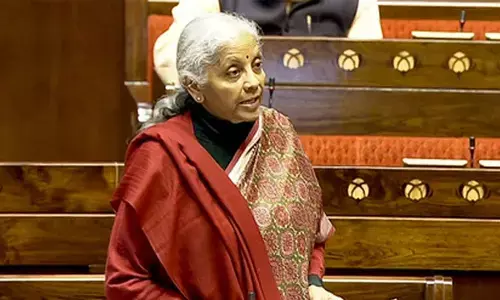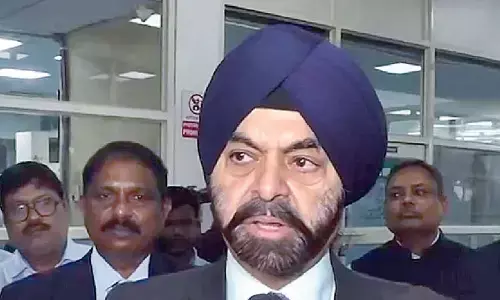How to improve English vocabulary?

How to improve English vocabulary?
Newspapers and magazines are a rich source of living vocabulary and its usage. Experienced journalists and seasoned writers use words, phrases and idioms at a right place and at a right time
“How to improve English vocabulary?” This is a question students often ask me in our coaching centre. As you know, these days General English paper is very common in many Competitive Exams including Civil Services Exams. Of course in some Exams this paper is of qualifying nature, while in some, marks secured by candidates in this paper are reckoned to decide their merit ranks.
In my attempt to answer the above question, I in turn, ask my students a few questions like “How many of them habitually read English newspapers? Do they watch English programs on TV? How often they write or speak in English?”My intention in asking them these questions is to impress upon them the fact that in building a good vocabulary, the four basic skills namely reading, writing, speaking and listening plays a decisive role.
“Reading makes a full man; conference a ready man; and writing an exact man”, said English essayist Bacon. Newspapers and magazines are a rich source of living vocabulary and its usage. Experienced journalists and seasoned writers use words, phrases and idioms at a right place and at a right time. Reading them exposes youngsters to the knowledge and practices of using words and their different forms contextually and situational. In particular these writers show to the readers how to use Formal and Informal words and how to avoid using Slang and Taboo words.
It is a pity that most of our youngsters pick up the habit of reading newspapers and magazines very late in their lives. Of course text books and textual execises therein at the college level help students in a limited manner. When selective newspapers and magazines find a permanent place in the curriculum at least from the Upper Primary levels, it helps youngsters build a good vocabulary and gives them a sound working knowledge of English.
It goes without saying that this Reading habit should go hand in glove with the other three language skills. Listening to people speaks in English and watching programs give youngsters the much needed aural and oral knowledge of words and their different shades of meanings.
Last but not the least, the writing skills will eventually cement all the language knowledge gained by using the other three skills. Writing a few sentences and a couple of short descriptive paragraphs DAILY gives the vocabulary a structural form. This is a crucial stage in building a sound and strong vocabulary. It will be more rewarding and entertaining when it is done in forms of short execises, word-building games and cross-word puzzles.
Look at this small “Filling in the Blank” exercise taken from the book, “Words” by John Seely. It is a game of sorts to be played with friends who in turns should supply a word to complete the sentence and bring out its different shades of meaning;
‘Please leave me alone,’ she........
Seely himself gives about 25 words like ‘said, shouted, gasped, yelped, sobbed etc..’ each one of them when used in the Blank brings out different moods of the speaker. Such games help youngsters know the subtle difference in the usage of words.
Finally nobody denies the role of dictionaries, thesaurus and serious literary works in helping youngsters tackle their vocabulary issues. It is only when youngsters have a strong foundation in General vocabulary, then they can really enjoy reading Shakespeare, Jane Austen, RK Narayana, Chetan Bhagat and all.
To sum it up, improving English vocabulary largely requires a planned academic back up, powered by sustained efforts by learners and supported by a nose for new words.
(The author is an Associate Professor of English (RETD), Sri Medha Centre for Competitive Exams, Hyderabad)
















